When food poisoning strikes people often spend hours wondering what...
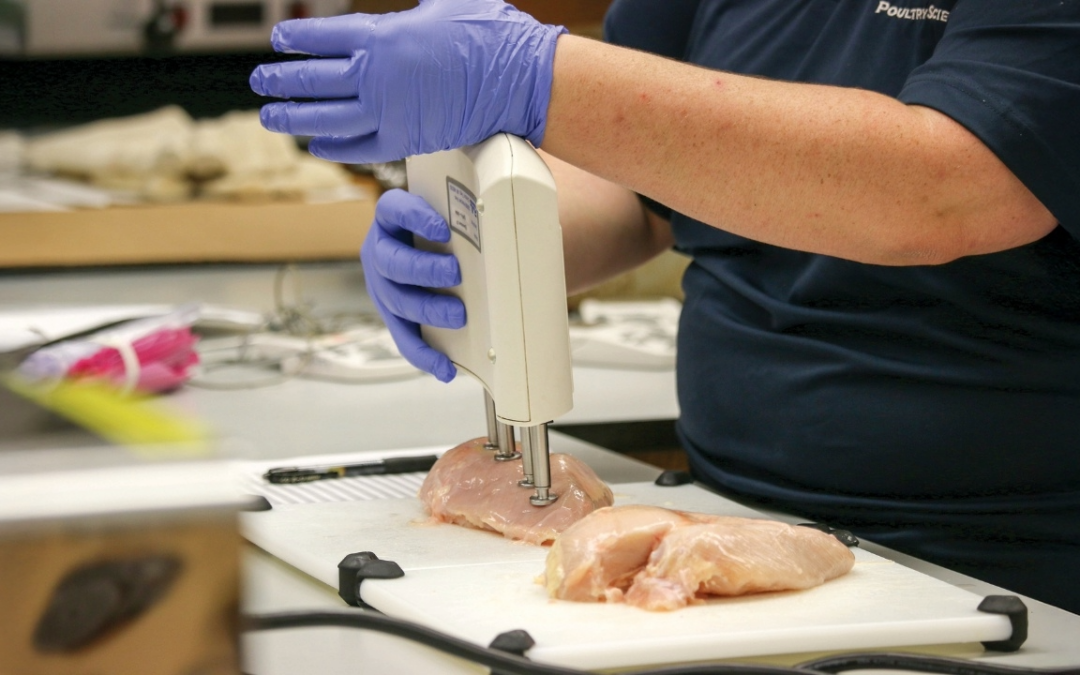

When food poisoning strikes people often spend hours wondering what...
A fierce battle is being waged between cotton and polyester, with polyester edging ahead as the most widely used fiber in the world, for now. In fact, synthetic materials account for more than half of today’s overall market share. If cotton wants to remain viable in...
Double Up Food Bucks Alabama is enhancing communities by making fresh local produce more affordable and accessible at select grocery stores and farmers markets. The program is funded in part by the U.S. Department of Agriculture (USDA) with matching funds from state...
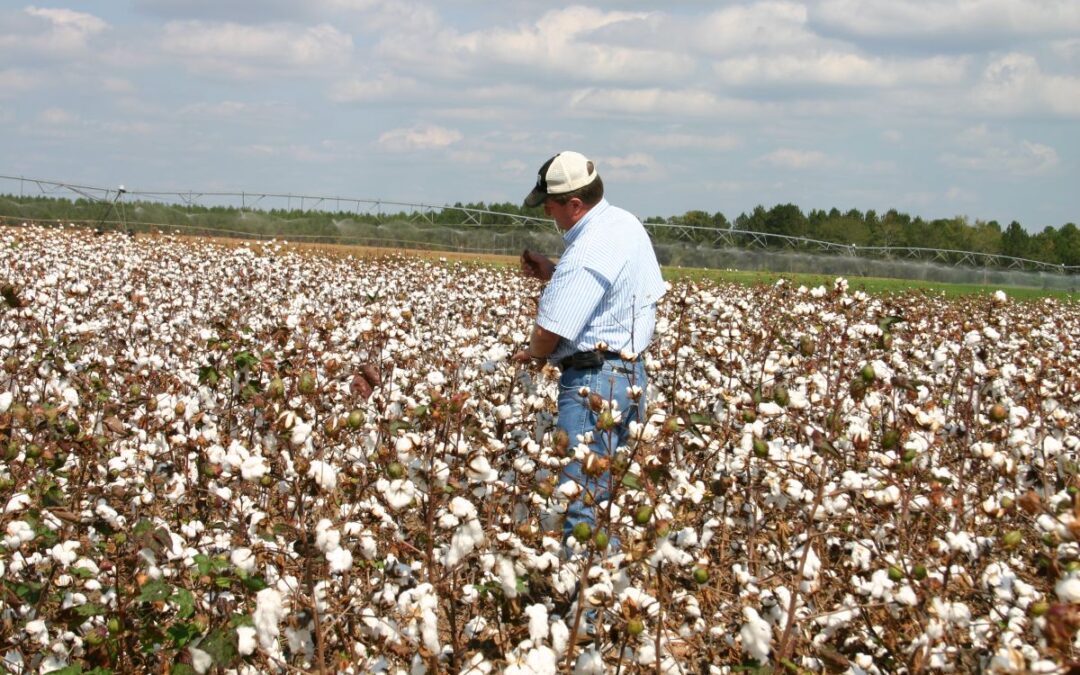
Cotton is undoubtedly one of the most recognizable plants in the world, with its heart-shaped leaves and branches that explode into powder-white fruit. But it’s also...
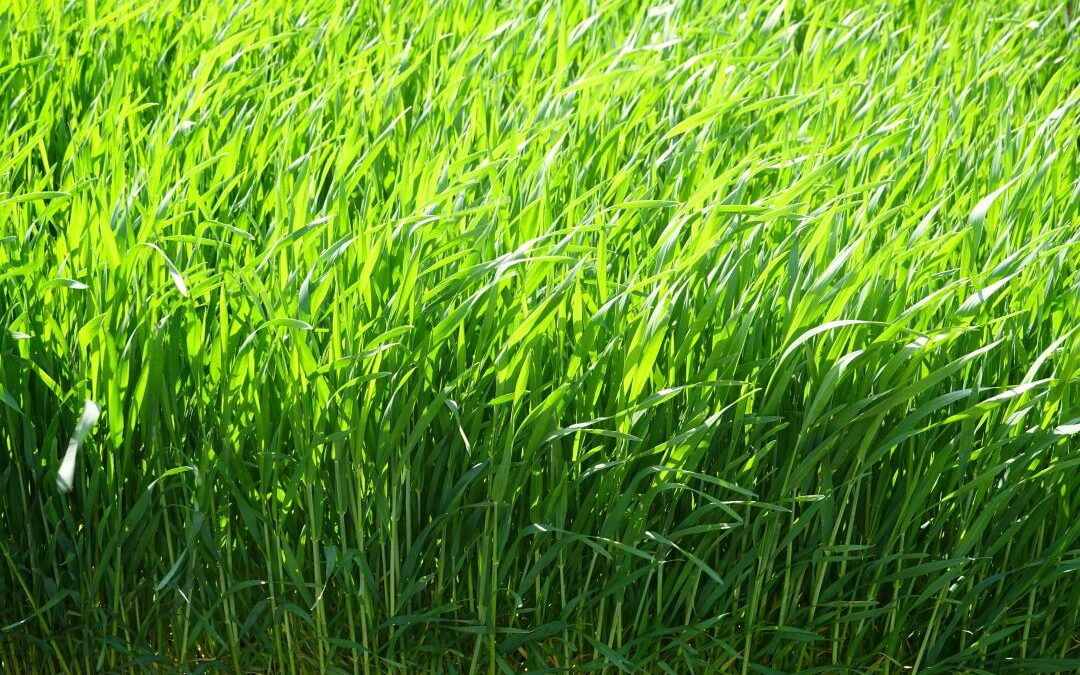
From the Coastal Plain to the Black Belt, Alabama cattle producers are utilizing forage systems to their advantage to meet the challenges of modern agriculture. Alabama...
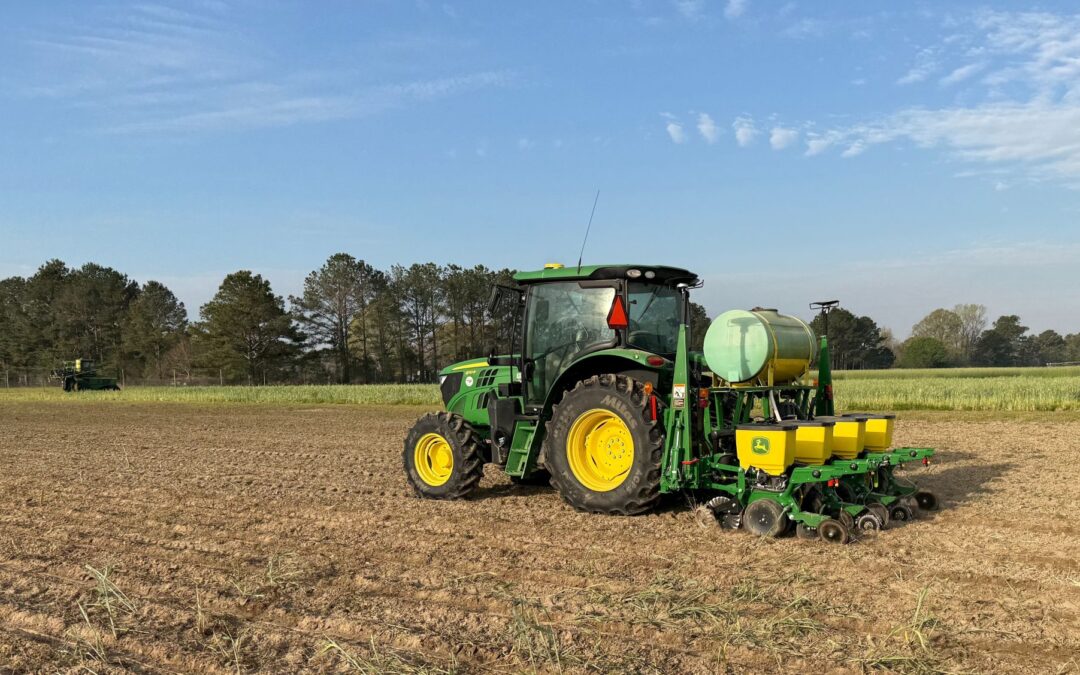
As spring planting shifts into high gear in farmers’ fields throughout the Southeast, few agricultural operations come close to matching the diversity of crops and...
by MAGGIE SMITH Christy Bratcher always knew she wanted a career that involved working with animals. However, being a veterinarian didn’t seem like the right fit. Bratcher, now an associate professor in the Department of Animal Sciences, knows she has found her home...
Henry Fadamiro has been tapped to serve as associate dean for research in Auburn University’s College of Agriculture and as associate director of the Alabama Agricultural Experiment Station, effective Jan. 1, 2017. He has served as the college’s assistant dean and...
The Auburn University College of Agriculture and Alabama Agricultural Experiment Station have announced their 2016 Faculty and Staff Award winners, all of whom will be formally recognized in a college/AAES awards ceremony in February. The faculty awards and their 2016...
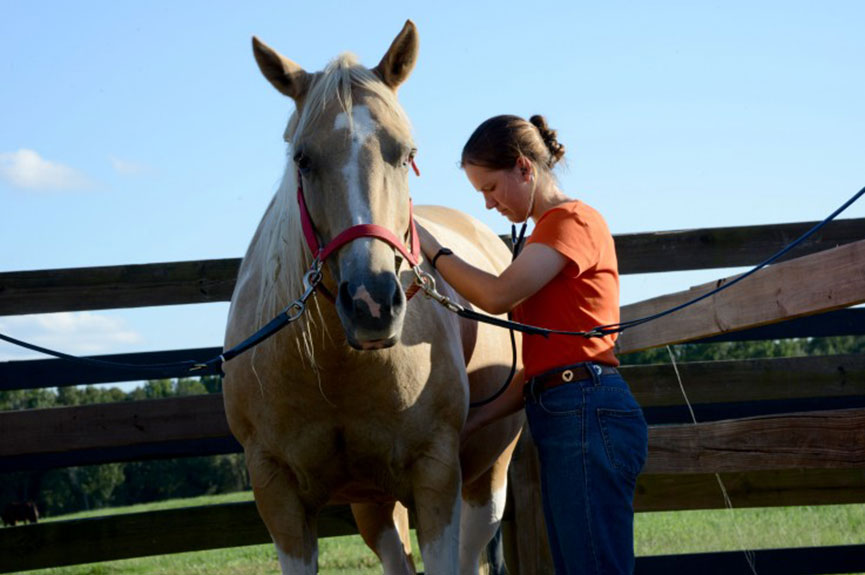
Alabama’s horse industry continues to have a substantial impact on the state’s bottom line, pumping an estimated $2.08 billion annually into the Alabama economy and contributing, both directly and indirectly, to about 24,000 jobs that represent $706 million in total labor income.
by PAUL HOLLIS Auburn University research aimed at minimizing a deadly disease in catfish has, in a short time, prompted Alabama catfish producers to significantly change what they feed their fish. In the study they launched in 2015, researchers are examining whether...
Faculty and staff are invited to participate in a research study with the Department of Agricultural Economics and Rural Sociology to understand food choice, expected consumption of food products and investment decisions. Any person over 19 and not a student is...

The Miller Center will support programming and activities of Auburn’s Department of Poultry Science and the National Poultry Technology Center. Poultry is Alabama’s leading agricultural commodity, with a $15 billion economic impact. And Alabama is one of the country’s leading poultry-producing states.
by PAUL HOLLIS The cost of food waste in America is estimated at a staggering $160 billion annually, with some reports stating that U.S. producers and consumers together waste more than 30 percent of our total food supply. Exploring some of the reasons for this...
by Joyce Tredaway Ducar The best yields I ever made in wheat averaged 107 bushels per acre, and they were made when I did just a few things differently than in the previous year. First, I controlled my weeds, particularly ryegrass. We have many options to use these...
National Poultry Technology Center The ever‐evolving modern poultry house has gained numerous energy efficiencies over the last few years. Improvements in tightening techniques and insulation technology and in ventilation systems, control systems, lighting and...
Auburn University’s Ag Heritage Park is the place to be on homecoming Saturday, Oct. 1, as the Auburn Agricultural Alumni Association and the College of Agriculture present the 2016 Fall Roundup and Taste of Alabama Agriculture. A homecoming pregame tradition, Ag...
Researchers with Alabama Cooperative Extension System (ACES) and Auburn University are conducting a statewide voluntary survey to determine the reach of a disease affecting loropetalum plants in nurseries. It's the first step in a farm bill-funded research...
by PAUL HOLLIS Long-term climate change combined with climate variability influenced by El Niño and La Niña phases of ENSO are having a significant impact on corn yields in Alabama, according to a study co-authored by Auburn University researcher Brenda Ortiz. “If we...
by PAUL HOLLIS Promising new herbicide technology could give Alabama farmers a powerful weapon in their battle against pigheaded pigweed, but growers must be alert to the chemicals’ negative impact on nearby crops. The new herbicide-resistance systems—a key topic...
Folks of all ages can get an entertaining, enlightening and up-close look at the fascinating world of agriculture during the fifth annual Ag Discovery Adventure, set for Saturday, Oct. 8, at Auburn University’s E.V. Smith Research Center in Shorter. The free,...
by PAUL HOLLISJulie Howe’s passion for craft beers and brewing began when she was pursuing her Ph.D. in soil science at the University of Wisconsin-Madison.“Everyone there was drinking beer that tasted better than what I was accustomed to, so I acquired a taste for...
by PAUL HOLLISNorth Alabama legislators and agricultural leaders got an update on the 2016 growing season and a review of some of the latest crop research during an open house tour at the Tennessee Valley Research and Extension Center in July.“It’s been a mixed bag as...
by PAUL HOLLISResearchers at the Tennessee Valley Research and Extension Center in north Alabama are working to provide a systems-management approach that would add value and profits to beef cattle operations throughout the state.The multi-year demonstration project...
by PAUL HOLLISThe Tennessee Valley Research and Extension Center in Belle Mina hosted an open house tour on July 19 to help inform state legislators and other leaders in agriculture about projects underway at the center. Participants also learned of Alabama...
Consumers of beef are invited to participate in a research study to investigate consumer behaviors regarding fresh red meat product handling. The study is being conducted by Derek Griffing, Ph.D. student, under the direction of Christy Bratcher, associate professor in...
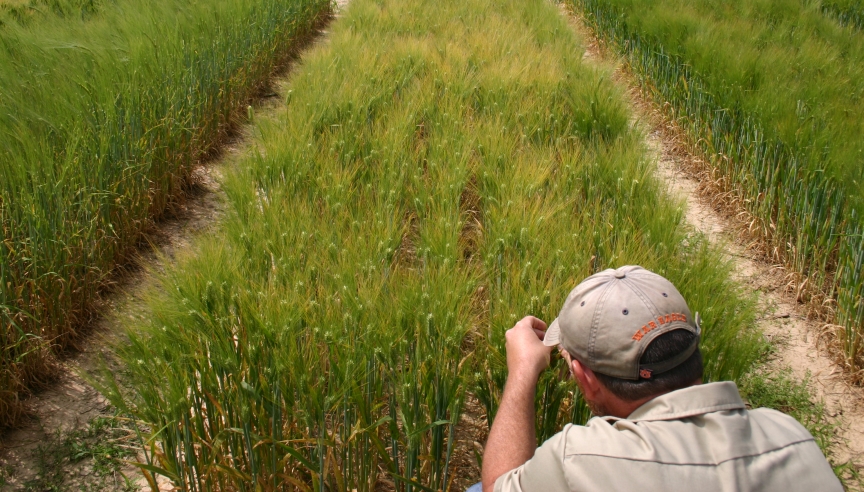
Researchers in Auburn’s College of Agriculture have embarked on a project to offer recommendations for farmers in the state who are interested in adding potential profit-makers to their crop mix.
by MAGGIE SMITH Christy Bratcher always knew she wanted a career that involved working with animals. However, being a veterinarian didn’t seem like the right fit. Bratcher, now an associate professor in the Department of Animal Sciences, knows she has found her home...
Henry Fadamiro has been tapped to serve as associate dean for research in Auburn University’s College of Agriculture and as associate director of the Alabama Agricultural Experiment Station, effective Jan. 1, 2017. He has served as the college’s assistant dean and...
The Auburn University College of Agriculture and Alabama Agricultural Experiment Station have announced their 2016 Faculty and Staff Award winners, all of whom will be formally recognized in a college/AAES awards ceremony in February. The faculty awards and their 2016...

Alabama’s horse industry continues to have a substantial impact on the state’s bottom line, pumping an estimated $2.08 billion annually into the Alabama economy and contributing, both directly and indirectly, to about 24,000 jobs that represent $706 million in total labor income.
by PAUL HOLLIS Auburn University research aimed at minimizing a deadly disease in catfish has, in a short time, prompted Alabama catfish producers to significantly change what they feed their fish. In the study they launched in 2015, researchers are examining whether...
Faculty and staff are invited to participate in a research study with the Department of Agricultural Economics and Rural Sociology to understand food choice, expected consumption of food products and investment decisions. Any person over 19 and not a student is...

The Miller Center will support programming and activities of Auburn’s Department of Poultry Science and the National Poultry Technology Center. Poultry is Alabama’s leading agricultural commodity, with a $15 billion economic impact. And Alabama is one of the country’s leading poultry-producing states.
by PAUL HOLLIS The cost of food waste in America is estimated at a staggering $160 billion annually, with some reports stating that U.S. producers and consumers together waste more than 30 percent of our total food supply. Exploring some of the reasons for this...
by Joyce Tredaway Ducar The best yields I ever made in wheat averaged 107 bushels per acre, and they were made when I did just a few things differently than in the previous year. First, I controlled my weeds, particularly ryegrass. We have many options to use these...
National Poultry Technology Center The ever‐evolving modern poultry house has gained numerous energy efficiencies over the last few years. Improvements in tightening techniques and insulation technology and in ventilation systems, control systems, lighting and...
Auburn University’s Ag Heritage Park is the place to be on homecoming Saturday, Oct. 1, as the Auburn Agricultural Alumni Association and the College of Agriculture present the 2016 Fall Roundup and Taste of Alabama Agriculture. A homecoming pregame tradition, Ag...
Researchers with Alabama Cooperative Extension System (ACES) and Auburn University are conducting a statewide voluntary survey to determine the reach of a disease affecting loropetalum plants in nurseries. It's the first step in a farm bill-funded research...
by PAUL HOLLIS Long-term climate change combined with climate variability influenced by El Niño and La Niña phases of ENSO are having a significant impact on corn yields in Alabama, according to a study co-authored by Auburn University researcher Brenda Ortiz. “If we...
by PAUL HOLLIS Promising new herbicide technology could give Alabama farmers a powerful weapon in their battle against pigheaded pigweed, but growers must be alert to the chemicals’ negative impact on nearby crops. The new herbicide-resistance systems—a key topic...
Folks of all ages can get an entertaining, enlightening and up-close look at the fascinating world of agriculture during the fifth annual Ag Discovery Adventure, set for Saturday, Oct. 8, at Auburn University’s E.V. Smith Research Center in Shorter. The free,...
by PAUL HOLLISJulie Howe’s passion for craft beers and brewing began when she was pursuing her Ph.D. in soil science at the University of Wisconsin-Madison.“Everyone there was drinking beer that tasted better than what I was accustomed to, so I acquired a taste for...
by PAUL HOLLISNorth Alabama legislators and agricultural leaders got an update on the 2016 growing season and a review of some of the latest crop research during an open house tour at the Tennessee Valley Research and Extension Center in July.“It’s been a mixed bag as...
by PAUL HOLLISResearchers at the Tennessee Valley Research and Extension Center in north Alabama are working to provide a systems-management approach that would add value and profits to beef cattle operations throughout the state.The multi-year demonstration project...
by PAUL HOLLISThe Tennessee Valley Research and Extension Center in Belle Mina hosted an open house tour on July 19 to help inform state legislators and other leaders in agriculture about projects underway at the center. Participants also learned of Alabama...
Consumers of beef are invited to participate in a research study to investigate consumer behaviors regarding fresh red meat product handling. The study is being conducted by Derek Griffing, Ph.D. student, under the direction of Christy Bratcher, associate professor in...

Researchers in Auburn’s College of Agriculture have embarked on a project to offer recommendations for farmers in the state who are interested in adding potential profit-makers to their crop mix.